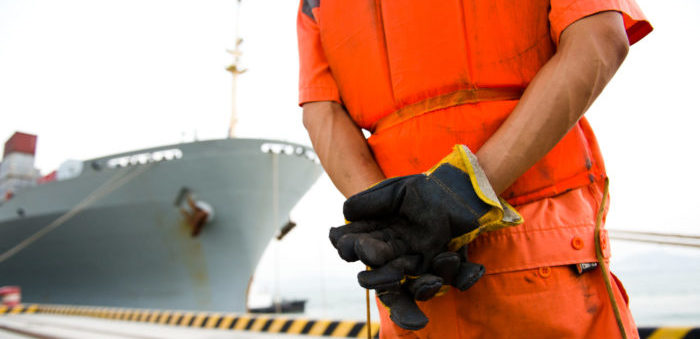In 1978, IMO adopted a landmark Convention for all seafarers across the world to establish high standards of competence and professionalism in their duties on-board. The International Convention on Standards of Training, Certification and Watchkeeping for Seafarers, the STCW Convention in brief, establishes the minimum basic requirements on training, certification and watchkeeping for seafarers on an international level.
- STCW Convention at a glance
- STCW Convention: Terms and Definitions
- Certificates needed for compliance with STCW
- How seafarers can get their STCW certificates
- STCW Convention: General requirements for officers
- STCW Convention: General requirements for ratings
- STCW: How to obtain a certificate of competency as Master
- STCW: How to obtain a certificate of competency as Chief Mate
- STCW: How to obtain a certificate of competency as Navigational Watch
- STCW certificates according to function and type of vessel
- Training issues under STCW: What you should know
- STCW: Certificates and documentary evidence needed onboard
- Alcohol and drug consumption onboard: Taking prevention measures
- STCW: Setting the hours of rest for watch personnel
The STCW Convention entered into force after six years, in 1984, and since then it has been amended twice, in 1995 and again in 2010, to incorporate significant changes as it became apparent that STCW-78 was not raising the bar for the professional standards worldwide. The latest amendments – the STCW 2010 Manila amendments – include all agreed changes since 1995, addressing also new technology, inconsistencies, interpretations and outdated provisions.
The provisions of the Convention not only apply to seafarers, but also to shipowners, training establishments and national maritime administrations. However, the STCW Convention does not apply to seafarers serving on warships, naval auxiliaries or any other government owned or operated ship engaged in non-commercial service; fishing vessels (there is a separate convention covering personnel on fishing vessels); pleasure yachts not engaged in trade and wooden ships of primitive build.
Important Dates
- 1 January 2012: the 2010-amended STCW Convention became effective for all countries party to the Convention requiring compliance with the new minimum rest hours and record of hours of work.
- 1 July 2013: since that date, new seafarers-training and competence comply with the 2010-amended STCW Convention.
- 1 January 2014: after that date, all seafarers are trained in security in compliance with the new provisions
- 1 January 2017: all seafarers on active service are required to meet the 2010 standards and thus they must hold a valid STCW certificate covering the functions performed on-board. Administrations also issue and recognize and endorse certificates in accordance with the STCW provisions prior to 2010 for those commencing training prior to 1 July 2013.
[adrotate banner="304"]
The 2010 Manila Amendments
Although the Manila Amendments became effective from January 1st, 2012, there was a transition period of five years, until 2017, for all seafarers. The most significant amendments are related to:
- New rest hours for seafarers
- New grades of certificates of competency for able seafarers in both deck and engine
- New and updated training, refreshing requirements
- Mandatory security training
- Additional medical standards
- Specific Alcohol limits in blood or breath.
Other amendments include new training requirements for able seafarers; electro-technical officers; for ECDIS; for marine environment awareness training and training in leadership and teamwork; for personnel serving on board ships operating in polar waters; and for personnel operating Dynamic Positioning Systems
STCW Convention Layout
The STCW Convention is a book, a copy of which is kept on board all sea-going merchant ships and consists of three sections:
- The articles which outline the legal responsibilities a party has to meet.
- The Annex which gives technical details on how the legal responsibilities referred to in the articles should be met.
- The STCW Code which specifies in more depth the technical details contained in the annex and contains part A and part B
STCW Code: Part A & B
In general, the Convention contains basic requirements that are explained in the STCW Code which consists of Part A (mandatory) and Part B (non mandatory).
- Part A: Mandatory standards of training, certification and watchkeeping. It establishes the minimum standards of competence required for seagoing personnel providing details in a series of tables. For example, Chapter II of the Code, deals with standards regarding the master and deck department.
- Part B: Recommended guidelines on training, certification and watch-keeping to assist in the implementation of the Convention. The examples given are only intended to illustrate effective ways for compliance with the Convention.































































